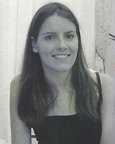Studying at the University of Verona
Here you can find information on the organisational aspects of the Programme, lecture timetables, learning activities and useful contact details for your time at the University, from enrolment to graduation.
Academic calendar
The academic calendar shows the deadlines and scheduled events that are relevant to students, teaching and technical-administrative staff of the University. Public holidays and University closures are also indicated. The academic year normally begins on 1 October each year and ends on 30 September of the following year.
Course calendar
The Academic Calendar sets out the degree programme lecture and exam timetables, as well as the relevant university closure dates..
| Period | From | To |
|---|---|---|
| Sem. 1A | Sep 24, 2018 | Nov 10, 2018 |
| Sem. 1B | Nov 19, 2018 | Jan 12, 2019 |
| Sem. 2A | Feb 18, 2019 | Mar 30, 2019 |
| Sem. 2B | Apr 8, 2019 | Jun 1, 2019 |
| Session | From | To |
|---|---|---|
| Sessione Invernale | Jan 14, 2019 | Feb 16, 2019 |
| Sessione Estiva (Gli esami sono sospesi durante la Sessione di laurea) | Jun 3, 2019 | Jul 27, 2019 |
| Sessione Autunnale | Aug 26, 2019 | Sep 21, 2019 |
| Session | From | To |
|---|---|---|
| Sessione Estiva | Jul 8, 2019 | Jul 13, 2019 |
| Sessione Autunnale - Servizio Sociale | Nov 8, 2019 | Nov 8, 2019 |
| Sessione Invernale | Mar 30, 2020 | Apr 4, 2020 |
| Period | From | To |
|---|---|---|
| Festa di Ognissanti | Nov 1, 2018 | Nov 1, 2018 |
| Festa dell’Immacolata | Dec 8, 2018 | Dec 8, 2018 |
| Vacanze di Natale | Dec 22, 2018 | Jan 6, 2019 |
| Vacanze di Pasqua | Apr 19, 2019 | Apr 23, 2019 |
| Festa della liberazione | Apr 25, 2019 | Apr 25, 2019 |
| Festa del lavoro | May 1, 2019 | May 1, 2019 |
| Festa del Santo Patrono - S. Zeno | May 21, 2019 | May 21, 2019 |
| Festa della Repubblica | Jun 2, 2019 | Jun 2, 2019 |
| Vacanze Estive | Aug 12, 2019 | Aug 17, 2019 |
Exam calendar
Exam dates and rounds are managed by the relevant Humanistic Studies Teaching and Student Services Unit.
To view all the exam sessions available, please use the Exam dashboard on ESSE3.
If you forgot your login details or have problems logging in, please contact the relevant IT HelpDesk, or check the login details recovery web page.
Should you have any doubts or questions, please check the Enrollment FAQs
Academic staff
 roberto.dallachiara@univr.it
roberto.dallachiara@univr.it
 elisabetta.neve@univr.it
elisabetta.neve@univr.it
 mauro.niero@univr.it
mauro.niero@univr.it
 marta.pantalone@univr.it
marta.pantalone@univr.it
Study Plan
The Study Plan includes all modules, teaching and learning activities that each student will need to undertake during their time at the University.
Please select your Study Plan based on your enrollment year.
1° Year
| Modules | Credits | TAF | SSD |
|---|
2° Year activated in the A.Y. 2019/2020
| Modules | Credits | TAF | SSD |
|---|
| Modules | Credits | TAF | SSD |
|---|
| Modules | Credits | TAF | SSD |
|---|
| Modules | Credits | TAF | SSD |
|---|
Legend | Type of training activity (TTA)
TAF (Type of Educational Activity) All courses and activities are classified into different types of educational activities, indicated by a letter.
General and intercultural pedagogy (2019/2020)
Teaching code
4S000590
Teacher
Coordinator
Credits
6
Language
Italian
Scientific Disciplinary Sector (SSD)
M-PED/01 - PEDAGOGY, THEORIES OF EDUCATION AND SOCIAL EDUCATION
Period
Sem. 2A dal Feb 17, 2020 al Mar 28, 2020.
Learning outcomes
KNOWLEDGE AND UNDERSTANDING
multidisciplinary knowledge aimed at critical analysis of specific social problems
ABILITY TO APPLY KNOWLEDGE AND UNDERSTANDING
ability to interpret the different situations of hardship and to promote the well-being of the community;
SPECIFIC OBJECTIVES
The theoretical knowledge about the intercultural pedagogy will serve to form the ability to recognize and manage in a pedagogically appropriate manner all forms of exclusion and discrimination present in the context in which the Social Worker typically operates and that closely touch the social services . In particular, the placement of pedagogy among other pedagogical responses to complexity will be taken into account. The relevance of intercultural pedagogy will also be taken into account to recognize and face challenges, risks and opportunities in multicultural society. The course will provide intercultural knowledge aimed at identifying indispensable elements in the construction of social interventions in a complex, interdependent and multicultural society.
Program
1. Globalization, complexity, values and education crises;
2. Centrality of pedagogy and education in the modern society.
3. Strategies of educational and social intervention with pluralism and diversity.
Learning objectives: The theoretical knowledge about general and intercultural pedagogy will serve to form the ability to know how to recognize and manage in a pedagogically appropriate manner various forms of exclusion and discrimination present in the context in which the specialist Social Worker typically operates and that touch social services closely. In particular, the placement of pedagogy among the other disciplines that provide answers to the challenges of complexity will be taken into account, as well as the relevance of the educational intervention to recognize and face risks and chances in the face of various forms of otherness (cultural, gender, social, skill , scc.). The course will provide intercultural knowledge and skills to identify indispensable elements in the construction of social interventions in the complex, interdependent and multicultural society.
BOOKS:
General Part
- PORTERA, A., BÖHM W., SECCO, L., Educabilità, educazione e Pedagogia nella società complessa. Lineamenti
introduttivi. UTET, Torino, 2007.
Monographic Part
- PORTERA, A., Tesori sommersi. Emigrazione, identità, bisogni educativi interculturali, FrancoAngeli, Milano, 1999.
- PORTERA, A., Milani M. (a cura di) Competenze interculturali e successo formativo, ETS Edizioni, Pisa, 2019.
The course includes theoretical-practical exercises which are an integral part of the program. One of the following texts (that won't have to be used for other exams) has to be chosen to analyze in the depth the practical part:
- *Gardner H., Sapere per comprendere. Feltrinelli, Milano, 1999.
- Portera, A. Globalizzazione e pedagogia (interculturale), Erickson, Trento, 2006.
- * MILANI, M., Competenze interculturali a scuola. Quiedit, Verona. 2017.
- *PORTERA, A. Manuale di pedagogia interculturale, Laterza, Roma-Bari, 2017 (4 ed.).
- *Portera, A., Dusi, P. (a cura di), Neoliberalismo, Educazione e Competenze interculturali. Franco Angeli, Milano, 2016.
- *PORTERA, A., ALBERTINI G., LAMBERTI S., Disabilità dello sviluppo, educazione e Cooperative Learning. Un approccio interculturale. F. Angeli, Milano, 2015.
- Fiorucci M., Pinto Minerva F., Portera A. (a cura di), Gli alfabeti dell’intercultura, Edizioni Ets, Pisa, 2017
- Bruner, J. La cultura dell’educazione. Feltrinelli, Milano, 1997.
- Brezinka, W. L’educazione in una società disorientata. Armando, Roma, 1989.
- Brezinka, W., Obiettivi e limiti dell’educazione, Armando, Roma, 2002.
- Contini M. La comunicazione intersoggettiva fra solitudini e globalizzazione. La Nuova Italia, 2002.
- *AA.VV., Educazione interculturale nel contesto internazionale Guerini, Milano, 2006.
- Delors, J. Nell’educazione un Tesoro. Armando, Roma, 1997.
- FAVARO, G. FUMAGALLI, M. (a cura di), capirsi diversi. Idee e pratiche di mediazione interculturale. Carocci, 2004
- Granese, A., Istituzioni di pedagogia generale. CEDAM, Padova, 2003.
- ANDOLFI, M. (a cura di), Famiglie immigrate e psicoterapia transculturale. F. Angeli, Milano, 2004
- Vico, G., Pedagogia generale e nuovo umanesimo. La Scuola, Brescia, 2002.
- LANEVE, C. et all,, La ricerca pedagogica in Europa. Modelli e temi a confronto. Pensa, Bari, 2006.
- CIPRIANI, R, MARGIOTTA U, et all,, La ricerca pedagogica in Italia. Mazzanti, Venezia, 2007.
- FRABBONI F. et alli, Le parole della Pedagogia, Boringhieri, Torino, 2007.
* text for not-attending students
| Author | Title | Publishing house | Year | ISBN | Notes |
|---|---|---|---|---|---|
| PORTERA, A., Milani M. (a cura di) | Competenze interculturali e successo formativo | ETS Edizioni | 2019 | Mandatory/Obbligatorio | |
| PORTERA, A., BÖHM W., SECCO, L. | Educabilità, educazione e Pedagogia nella società complessa. Lineamenti introduttivi. | UTET | 2007 | Mandatory/Obbligatorio PS Another book has to be chosen from the list in the program (total books: 4)/Oltre ai libri obbligatori è necessario scegliere un testo tra quelli presenti nella lista. In totale i libri da studiare sono 4. | |
| PORTERA, A | Tesori sommersi. Emigrazione, identità, bisogni educativi interculturali | FrancoAngeli | 1999 | Mandatory/Obbligatorio |
Examination Methods
The exam aims at verifying the level of achievement of the educational objectives previously mentioned. The exam consists of a written test with closed questions from some textbooks and an open question. The oral exam on all the textbooks can be taken on the same day, after getting the result of the written test.The educational and evaluation modalities of learning will be communicated at the beginning of the lessons.
Type D and Type F activities
Modules not yet included
Career prospects
Module/Programme news
News for students
There you will find information, resources and services useful during your time at the University (Student’s exam record, your study plan on ESSE3, Distance Learning courses, university email account, office forms, administrative procedures, etc.). You can log into MyUnivr with your GIA login details: only in this way will you be able to receive notification of all the notices from your teachers and your secretariat via email and soon also via the Univr app.
Graduation
Documents
| Title | Info File |
|---|---|
|
|
pdf, it, 99 KB, 13/10/23 |
|
|
pdf, it, 101 KB, 10/04/24 |
List of theses and work experience proposals
| theses proposals | Research area |
|---|---|
| LGBTQ+ Social Psychology | Various topics |
Student mentoring
Gestione carriere
Linguistic training CLA
Practical information for students
Documents
| Title | Info File |
|---|---|
|
|
pdf, it, 325 KB, 02/05/23 |
|
|
pdf, it, 212 KB, 02/05/23 |
|
|
pdf, it, 131 KB, 02/05/23 |
Stage e Tirocini
Il Corso di Studi prevede un tirocinio obbligatorio, secondo le disposizioni e indicazioni che seguono.
1. Le attività di tirocinio degli studenti si svolgono presso strutture esterne, convenzionate con l’Università degli Studi di Verona ai sensi delle vigenti disposizioni in materia.
2. Nelle strutture esterne gli studenti svolgono le attività di tirocinio sotto la responsabilità di un assistente sociale (Tutor-supervisore), appartenente a dette strutture, coordinato a sua volta dal responsabile del tirocinio presso il Corso di Studio. In assenza di un assistente sociale, operante nella struttura esterna, il Collegio didattico, per quanto di competenza, decide, su proposta dei responsabili del tirocinio, in ordine alle condizioni per l’effettuazione o la prosecuzione delle attività di tirocinio degli studenti interessati.
3. Le attività di tirocinio sono obbligatorie per almeno 250 ore. Il Collegio didattico, in deroga alle disposizioni del presente articolo, può consentire a studenti che si trovino in particolari condizioni, in specie se disabili, lavoratori o impegnati in organismi collegiali dell’Università degli Studi di Verona, di non ottemperare in parte all’obbligo di frequenza alle attività di tirocinio, predisponendo forme alternative di tirocinio, anche tramite supporti telematici e multimediali interattivi.
4. I responsabili delle attività di tirocinio presso il Corso di Studio, anche avvalendosi di appositi collaboratori o tutori esterni, accertano la presenza degli studenti presso le rispettive strutture.
5. Al termine dell’attività di tirocinio, lo studente deve presentare una relazione scritta al responsabile di tale attività presso il Corso di Studio. Lo studente elabora la relazione scritta, controfirmata dal Tutor-supervisore. La relazione finale viene valutata dal responsabile del tirocinio presso il Corso di Studio e deve tenere conto degli obiettivi prefissati dal Collegio didattico.
La valutazione viene attribuita al tirocinio nel seguente modo: sufficiente = 0; buono = 1; ottimo = 2; eccellente = 3 e verrà aggiunta alla media dei voti del curriculum al momento della discussione della tesi.
6. Gli Uffici della Direzione Didattica e Servizi agli Studenti predispongono la documentazione necessaria allo svolgimento delle attività di tirocinio, comprese attestazioni e certificazioni.
7. Nel caso in cui lo studente partecipi al programma Erasmus le attività di tirocinio vengono regolamentate come segue:
A – Lo studente svolge il Tirocinio presso la sede Erasmus.
Se lo studente svolge il Tirocinio all’estero si ritiene “assolto” l’obbligo di frequenza al Laboratorio se:
- lo studente aggiorna il proprio docente/tutor con brevi relazioni mensili da inviare mezzo mail, sull’andamento del lavoro svolto presso la sede estera;
- produce una relazione finale completa del tirocinio svolto.
La valutazione finale del laboratorio di guida al tirocinio sarà effettuata da parte del tutor del laboratorio sulla base della relazione dello studente tenendo conto della eventuale valutazione da parte del supervisore estero.
B – Lo studente non svolge il Tirocinio presso la sede Erasmus
Se lo studente non svolge il Tirocinio nella sede Erasmus e lo deve fare al rientro:
- lo studente effettua uno/due incontri individuali iniziali con il docente/tutor in cui predisporre quanto necessita per l’avvio del tirocinio e nei quali verranno forniti materiali, griglie ed eventuali testi di riferimento;
- invia brevi relazioni mensili sull’andamento del tirocinio che sarà svolto in Italia al di fuori del periodo in cui si tiene normalmente il laboratorio di guida al tirocinio;
- produce la relazione finale completa del tirocinio svolto.
Il Corso di Studi prevede un laboratorio interdisciplinare come attività formativa trasversale (3 Cfu di tipo F), presente nell’elenco degli insegnamenti Il laboratorio, per regolamento, prevede la frequenza obbligatoria per almeno i due terzi del totale delle ore.
- Tutte le informazioni in merito agli stage per futuri studenti sono disponibili alla pagina Stage e tirocini.
- Tutte le informazioni in merito agli stage per studenti iscritti sono pubblicate in MyUnivr - come fare per - stage e tirocini.
- Tutte le informazioni in merito agli stage per le aziende sono disponili alla pagina Stage e tirocini per azienze.

 0458425308
0458425308












